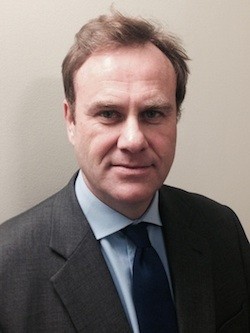
Electronic trading in fixed income securities is expanding as regulators seek to bring greater transparency and efficientcy to a market that has been largely conducted over the telephone.
“There’s a regulatory push which is forcing fixed income to go more electronic,” said Byron Cooper Fogarty, head of e-commerce solutions for fixed income at Thomson Reuters. “Some products, like government bonds, are relatively electronic, but corporate bonds are certainly not. Until SEFs came along in the U.S., there wasn’t a lot happening in the derivatives space. It really is regulation that’s driving it.”
The Securities and Exchange Commission has made the fixed income market one of its examination priorities for 2014, according to a document on the SEC website.
SEC staff will focus on a number of issues, including the structure of the market and its effect on the quality of executions and, in particular, the use of filters by market participants to control what is displayed by fixed income ATSs.
“We are publishing these priorities to highlight areas that we perceive to have heightened risk,” said Andrew Bowden, director of the SEC’s Office of Compliance Inspections and Examinations. “This document, along with our Risk Alerts and other public statements, help us to increase transparency, strengthen compliance, and inform the public and the financial services industry about key risks that we are monitoring and examining.”
SEC staff will evaluate factors that may impact the quality of execution in the fixed income market, including market structure and the use of ATS. For example, ATS interfaces may impact the range of quotations displayed to market participants.

Byron Cooper Fogarty, Thomson Reuters
Thomson Reuters is looking to expand its fixed income trading platform significantly, primarily in bonds, but it is also looking into derivatives as well. “What we do that’s unique is provide automation in the cash bond market,” said Fogarty. “In credit, where markets have become fragmented and it’s harder to find liquidity, and dealers have reduced inventory in both the U.S. and Europe, automation allows customers to source and execute liquidity from market makers in a highly efficient manner.”
This is particularly true for smaller or odd lot-size tickets. Larger tickets still tend to be done over the phone or via messaging devices. “In the case of some our large wealth management client, they have thousands of bond trades to do a day, so rather than using a telephone or manually entering the trades, they use automation through our platform,” said Fogarty. “Unlike in FX and equities, automation is still not widespread in fixed income. We think it will become increasingly widespread over the next few years.”
Thomson Reuters announced in September that Societe Generale became the latest financial institution to list cash bond prices on its electronic bond trading platform, Thomson Reuters Fixed Income Trading, which provides cash fixed income liquidity to private bank and wealth management execution desks through an extensive range of instruments from global, regional and local dealers. The bank joins 17 financial institutions already contributing prices to the platform.
“Fixed income is very much a multi-dealer game,” Fogarty said. “What SocGen gets as a dealer joining our platform is access to the large wealth managers and private banks that we’ve on-boarded in Europe. Because of our automation, those customers treat us as their preferred platform. For SocGen, it confers almost a preferred dealer status by joining our system.”






